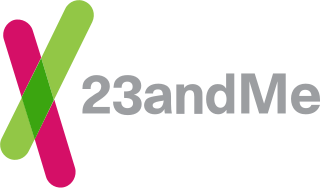In business, a takeover is the purchase of one company by another. In the UK, the term refers to the acquisition of a public company whose shares are publicly listed, in contrast to the acquisition of a private company.
Information privacy is the relationship between the collection and dissemination of data, technology, the public expectation of privacy, contextual information norms, and the legal and political issues surrounding them. It is also known as data privacy or data protection.
Medical privacy, or health privacy, is the practice of maintaining the security and confidentiality of patient records. It involves both the conversational discretion of health care providers and the security of medical records. The terms can also refer to the physical privacy of patients from other patients and providers while in a medical facility, and to modesty in medical settings. Modern concerns include the degree of disclosure to insurance companies, employers, and other third parties. The advent of electronic medical records (EMR) and patient care management systems (PCMS) have raised new concerns about privacy, balanced with efforts to reduce duplication of services and medical errors.

The Health Insurance Portability and Accountability Act of 1996 is a United States Act of Congress enacted by the 104th United States Congress and signed into law by President Bill Clinton on August 21, 1996. It aimed to alter the transfer of healthcare information, stipulated the guidelines by which personally identifiable information maintained by the healthcare and healthcare insurance industries should be protected from fraud and theft, and addressed some limitations on healthcare insurance coverage. It generally prohibits healthcare providers and businesses called covered entities from disclosing protected information to anyone other than a patient and the patient's authorized representatives without their consent. The bill does not restrict patients from receiving information about themselves. Furthermore, it does not prohibit patients from voluntarily sharing their health information however they choose, nor does it require confidentiality where a patient discloses medical information to family members, friends or other individuals not employees of a covered entity.
A privacy policy is a statement or legal document that discloses some or all of the ways a party gathers, uses, discloses, and manages a customer or client's data. Personal information can be anything that can be used to identify an individual, not limited to the person's name, address, date of birth, marital status, contact information, ID issue, and expiry date, financial records, credit information, medical history, where one travels, and intentions to acquire goods and services. In the case of a business, it is often a statement that declares a party's policy on how it collects, stores, and releases personal information it collects. It informs the client what specific information is collected, and whether it is kept confidential, shared with partners, or sold to other firms or enterprises. Privacy policies typically represent a broader, more generalized treatment, as opposed to data use statements, which tend to be more detailed and specific.

Medical research, also known as health research, refers to the process of using scientific methods with the aim to produce knowledge about human diseases, the prevention and treatment of illness, and the promotion of health.
Information privacy, data privacy or data protection laws provide a legal framework on how to obtain, use and store data of natural persons. The various laws around the world describe the rights of natural persons to control who is using its data. This includes usually the right to get details on which data is stored, for what purpose and to request the deletion in case the purpose is not given anymore.
Health technology is defined by the World Health Organization as the "application of organized knowledge and skills in the form of devices, medicines, vaccines, procedures, and systems developed to solve a health problem and improve quality of lives". This includes pharmaceuticals, devices, procedures, and organizational systems used in the healthcare industry, as well as computer-supported information systems. In the United States, these technologies involve standardized physical objects, as well as traditional and designed social means and methods to treat or care for patients.
Express Scripts Holding Company is a pharmacy benefit management (PBM) organization. In 2017 it was the 22nd-largest company in the United States by total revenue as well as the largest pharmacy benefit management (PBM) organization in the United States. Express Scripts had 2016 revenues of $100.752 billion. Since December 20, 2018, the company has been a direct subsidiary of Bloomfield, Connecticut-based Cigna.
The International Safe Harbor Privacy Principles or Safe Harbour Privacy Principles were principles developed between 1998 and 2000 in order to prevent private organizations within the European Union or United States which store customer data from accidentally disclosing or losing personal information. They were overturned on October 6, 2015, by the European Court of Justice (ECJ), which enabled some US companies to comply with privacy laws protecting European Union and Swiss citizens. US companies storing customer data could self-certify that they adhered to 7 principles, to comply with the EU Data Protection Directive and with Swiss requirements. The US Department of Commerce developed privacy frameworks in conjunction with both the European Union and the Federal Data Protection and Information Commissioner of Switzerland.
IMS Health was an American company that provided information, services and technology for the healthcare industry. IMS stood for Intercontinental Medical Statistics. It was the largest vendor of U.S. physician prescribing data. IMS Health was founded in 1954 by Bill Frohlich and David Dubow with Arthur Sackler having a hidden ownership stake. In 2010, IMS Health was taken private by TPG Capital, CPP Investment Board and Leonard Green & Partners. The company went public on April 4, 2014, and began trading on the NYSE under the symbol IMS. IMS Health was headquartered in Danbury, Connecticut.
Medical necessity is a legal doctrine in the United States related to activities that may be justified as reasonable, necessary, and/or appropriate based on evidence-based clinical standards of care. In contrast, unnecessary health care lacks such justification.

23andMe Holding Co. is an American personal genomics and biotechnology company based in South San Francisco, California. It is best known for providing a direct-to-consumer genetic testing service in which customers provide a saliva sample that is laboratory analysed, using single nucleotide polymorphism genotyping, to generate reports relating to the customer's ancestry and genetic predispositions to health-related topics. The company's name is derived from the 23 pairs of chromosomes in a diploid human cell.

Mallinckrodt Pharmaceuticals is an American-Irish domiciled manufacturer of specialty pharmaceuticals, generic drugs and imaging agents. In 2017, it generated 90% of its sales from the U.S. healthcare system. While Mallinckrodt is headquartered in Ireland for tax purposes, its operational headquarters are in the U.S. Mallinckrodt's 2013 tax inversion to Ireland drew controversy when it was shown Acthar was Medicaid's most expensive drug.
Consumer Reports Best Buy Drugs is a United States public, grant-funded project of Consumer Reports Health that provides consumers unbiased information about prescription medicines. The project educates consumers on safe, effective, and low-cost alternatives to their prescription drugs. It aims to improve access to needed medicines for Americans who struggle to pay for their medications. Best Buy Drugs compares prescription drugs for common health conditions based on effectiveness, safety, and price, to help people talk to their doctors about the most effective and affordable medicines.
Health care fraud includes "snake oil" marketing, health insurance fraud, drug fraud, and medical fraud. Health insurance fraud occurs when a company or an individual defrauds an insurer or government health care program, such as Medicare or equivalent State programs. The manner in which this is done varies, and persons engaging in fraud are always seeking new ways to circumvent the law. Damages from fraud can be recovered by use of the False Claims Act, most commonly under the qui tam provisions which rewards an individual for being a "whistleblower", or relator (law).

De-identification is the process used to prevent someone's personal identity from being revealed. For example, data produced during human subject research might be de-identified to preserve the privacy of research participants. Biological data may be de-identified in order to comply with HIPAA regulations that define and stipulate patient privacy laws.
A safe harbor is a provision of a statute or a regulation that specifies that certain conduct will be deemed not to violate a given rule. It is usually found in connection with a more-vague, overall standard. By contrast, "unsafe harbors" describe conduct that will be deemed to violate the rule.
The Health Information Technology for Economic and Clinical Health Act, abbreviated the HITECH Act, was enacted under Title XIII of the American Recovery and Reinvestment Act of 2009. Under the HITECH Act, the United States Department of Health and Human Services resolved to spend $25.9 billion to promote and expand the adoption of health information technology. The Washington Post reported the inclusion of "as much as $36.5 billion in spending to create a nationwide network of electronic health records." At the time it was enacted, it was considered "the most important piece of health care legislation to be passed in the last 20 to 30 years" and the "foundation for health care reform."
Health care analytics is the health care analysis activities that can be undertaken as a result of data collected from four areas within healthcare; claims and cost data, pharmaceutical and research and development (R&D) data, clinical data, and patient behavior and sentiment data (patient behaviors and preferences,. Health care analytics is a growing industry in the United States, expected to grow to more than $31 billion by 2022. The industry focuses on the areas of clinical analysis, financial analysis, supply chain analysis, as well as marketing, fraud and HR analysis.




